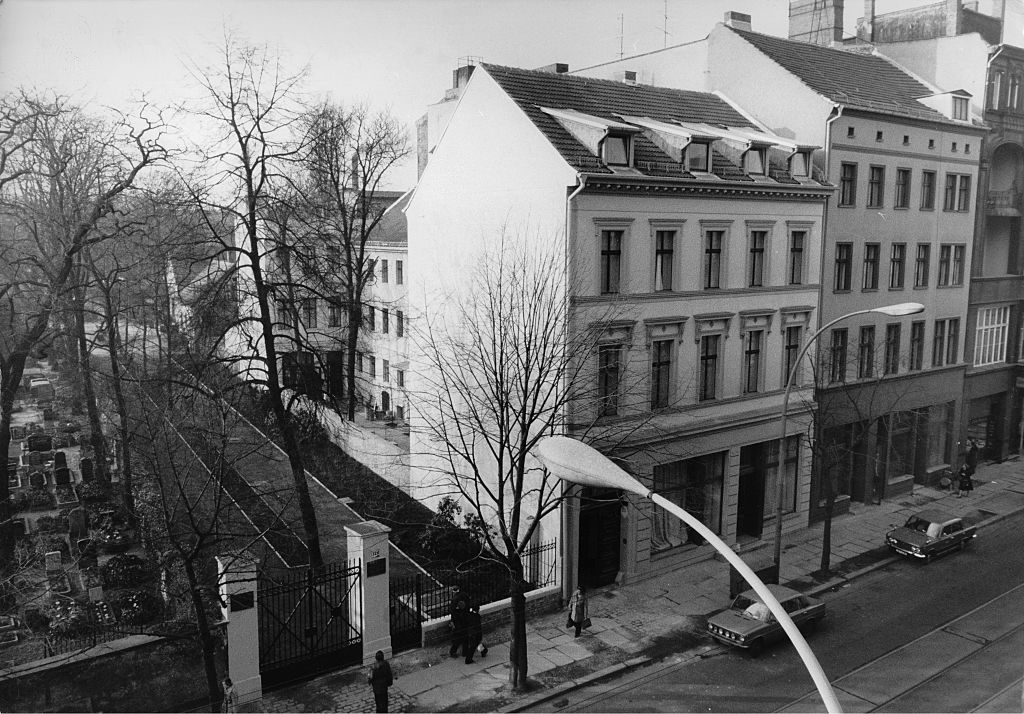Germany’s Higher Administrative Court in Münster has ruled that the city library must remove politically charged warning labels from two controversial books.
It criticised the facility’s move as a violation of the authors’ fundamental rights.
The court declared on July 8 that the classification notices, posted on works by authors Gerhard Wisnewski and Jacques Baud, was unlawful and undermined freedom of speech and the right to form independent opinions.
“The classification notice violates the author’s fundamental right to freedom of expression as well as his general personal rights,” the court stated in its decision, which is final and not subject to appeal.
In response to the ruling, the city library confirmed it will adjust its policies.
“The city library is adapting its concept on how to deal with these and other controversial works in future, taking into account the new legal requirements”, they told Brussels Signal on July 10.
At the heart of the case was a label attached to the books inside the city library that read: “This is a work with controversial content. The content of this work may not be compatible with the principles of a democratic society. This copy is provided on the basis of freedom of censorship, freedom of expression, and freedom of information.”
The court found this phrasing went far beyond neutrality, essentially discrediting the ideas contained in the books and discouraging potential readers from engaging with them.
According to the ruling, such a notice “negatively frames the opinions expressed in the book” and violated the principle that opinion formation in a democratic society must be “free of steering”.
While libraries were entitled to choose what works to stock or exclude, the court emphasised they had no mandate to editorialise on content once a book was in situ.
“The duties assigned by the legislature to public libraries do not authorise them to negatively label media in their collection,” the court found.
Instead, libraries should empower “mature citizens” to form their own views without institutional handholding, it said.
The books targeted by the now-discredited warning label included Concealed – Covered Up – Forgotten 2024 by journalist and author Wisnewski, published by Kopp Verlag.
The annual “alternative yearbook” claimed to highlight news stories overlooked or deliberately suppressed by mainstream outlets. Wisnewski was also known for One Small Step?, a book questioning the official narrative of the moon landings.
Wisnewski was regarded as a German conspiracy writer by Conspiracy Watch, an organisation which fights against conspiracy theories.
Also targeted was Putin: Game Master by Swiss security expert Baud, which challenged prevailing Western narratives about the Ukraine war.
Another state library, in the city of Karlsruhe, acknowledged Baud’s alternative analysis on its website summary of the work rather than attach warning labels to the book.
“J Baud analyses media from various countries regarding their coverage of the war in Ukraine. He examines quotes, compares sources, and presents evidence that points to dubious journalism. His objective perspective differs from many other publications,” the website stated.
In April, Sabin Pint, a German citizen who said she also worked for a city library, wrote an open letter rejecting the use of classification warnings as part of a library’s educational mission.
She warned of slippery slope: If certain opinions or media were labelled as “undemocratic,” this could be used as a political tool to suppress dissent or controversial ideas, she said.
“As a citizen and library user, I expect my city library – through its staff, its leadership, and ultimately its mayor – to provide information from all ideological perspectives,” she added.
A non-profit organisation in Berlin has erased the recording of a young German author’s reading from its website, after he revealed he had written an article for a news portal deemed “right-wing” by many on the German Left. https://t.co/Gp2Je60YNp
— Brussels Signal (@brusselssignal) June 23, 2025
Meanwhile, the German Library Association (BIB) has promoted what it called the “Media on the Margins” initiative, encouraging libraries to “actively mediate” controversial content.
On January 7, it published a guide on how to deal with controversial works in libraries.
The group described such facilities not merely as book-lending institutions but as “engaged public actors” tasked with helping communities navigate difficult ideas.
BIB discussed how to handle material that may “provoke strong emotional reactions” or come from “problematic authors, publishers, or topics”.
But, according to the Münster court, the line between curation and censorship had been crossed.
This latest ruling by the High Court overturned an earlier decision by the Münster Administrative Court from April 2025, which sided with the library.
The lower court had praised public libraries as guardians of “expertly curated information” and upheld their autonomy in media selection.
The higher court took a different stance, warning that libraries may not assume the role of ideological gatekeepers under the guise of civic responsibility.
It argued the cultural code of North Rhine-Westphalia obliged public institutions to expand the marketplace of ideas, not to police it.
In short, as the ruling stated, “The public library may have been free to refrain from acquiring the book.
“However, the cultural and educational responsibilities assigned to public libraries by law do not give them the authority to negatively assess media in the library’s holdings by means of a classification notice.
“Rather, the focus of the legal regulations is to enable library users, as responsible citizens, to obtain information independently and unhindered and to form their own opinions without being influenced in this regard,” the court concluded.
A public conference on Islamism in schools, scheduled to take place at a Brussels bookstore, has been cancelled after organisers received threats apparently from young Muslims. https://t.co/bD49HwS3zs
— Brussels Signal (@brusselssignal) November 19, 2024





